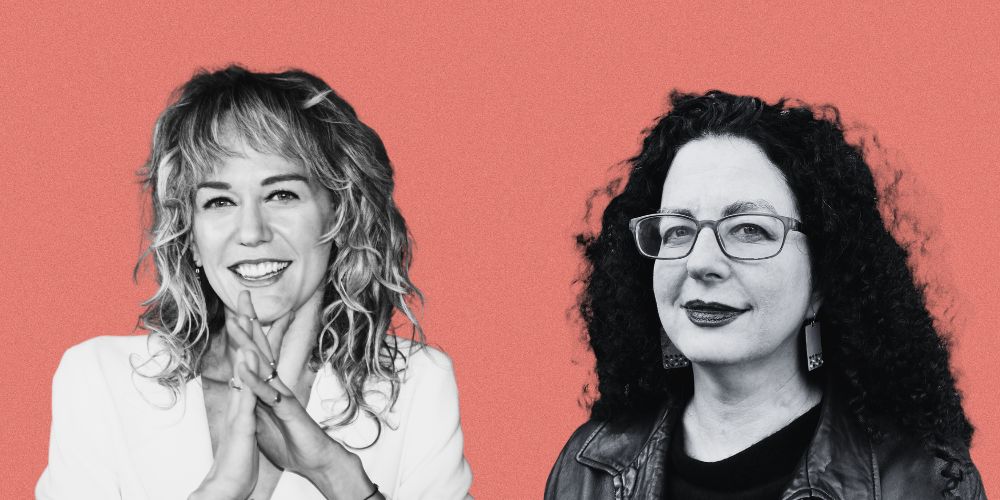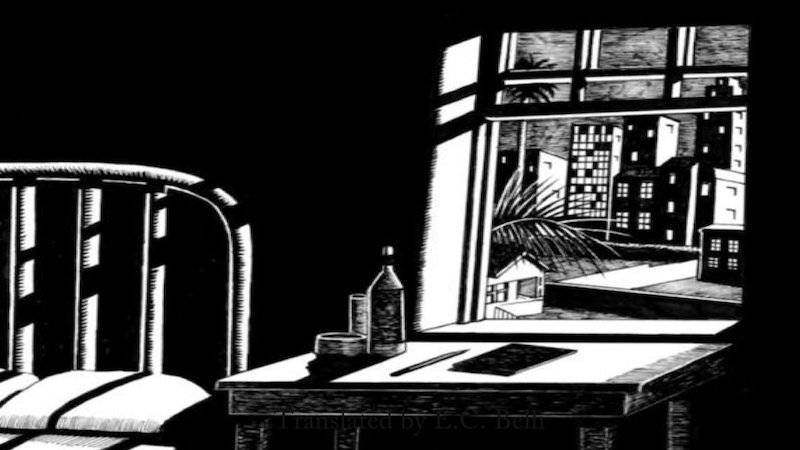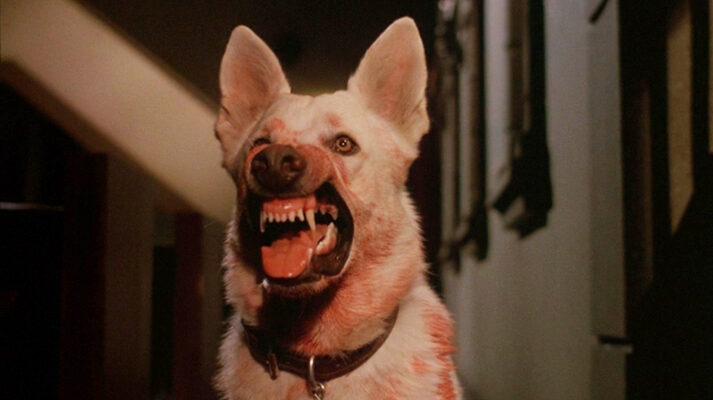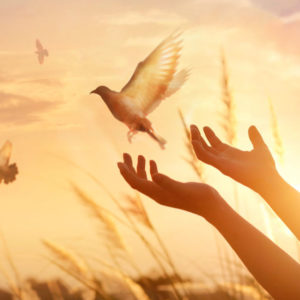Sally Franson and Emily Nussbaum on Reality TV
In Conversation with V.V. Ganeshananthan on Fiction/Non/Fiction
Novelist Sally Franson and critic Emily Nussbaum join host V.V. Ganeshananthan to talk about reality television. Franson, a recent reality TV show winner whose new novel, Big in Sweden, is from the point of view of a woman who joins the cast of a program in that country, reflects on transforming her real-life experience into fiction. Nussbaum, a staff writer at The New Yorker whose new nonfiction book, Cue the Sun!: The Invention of Reality TV, addresses the history of what she calls the “dirty documentary” genre, discusses the hundreds of interviews she conducted with reality show staff, as well as the form’s surprisingly early origins and the influence of The Apprentice on national politics. Nussbaum and Franson trade notes on how the relationships between people on camera and people behind the camera influence edited footage; the way race was and is handled on reality television; and what it’s like to be a contestant or producer. They also talk about poor labor conditions on sets and what that means to the genre. They read from their work.
Check out video excerpts from our interviews at Lit Hub’s Virtual Book Channel, Fiction/Non/Fiction’s YouTube Channel, and our website. This episode of the podcast was produced by Anne Kniggendorf.
*
From the episode:
V.V. Ganeshananthan: These writers’ new books tell the story of reality television, and with a former reality TV star once again leading in the polls for the 2024 presidential election — my blood pressure is going up even in this moment — understanding the appeal of this genre couldn’t be more important. So our first guest today is a return guest, Sally Franson, the author of the novel A Lady’s Guide to Selling Out. Sally was also a 2022 cast member of Allt För Sverige, a Swedish reality TV show about finding your roots, and her second novel, Big in Sweden, about someone on a Swedish reality TV show, just came out this month. And the audiobook of Big in Sweden is narrated by Meg Ryan. Sally lives here in Minneapolis. Sally, welcome back to the show.
Sally Franson: Thanks so much. I’m so happy to be back.
VVG: And our second guest, Emily Nussbaum, is a staff writer for The New Yorker and previously the magazine’s TV critic. She has also worked as an editor and a writer at New York Magazine where she created the Approval Matrix. She’s written for Slate, The New York Times, Lingua Franca and Nerve among other publications, and in 2016 she won the Pulitzer Prize for criticism. She lives in Brooklyn with her husband, Clive Thompson, and her two children. She doesn’t have a favorite TV show, but under pressure, she’ll choose Slings and Arrows. Her new book is Cue the Sun!: The Invention of Reality TV. Welcome to the show, Emily.
Emily Nussbaum: Thank you for having me.
VVG: So, we’re super lucky to have you both with us today. I am very psyched. And I thought we would just start by having our listeners hear how you began these projects. And Sally, maybe we can start with you. You were on a Swedish reality television show. And of course, as anyone who had met you might have suspected would happen, you won. And I wonder if you can tell us a little bit about that experience, and how you decided to transform it into fiction?
SF: That’s such a great question. I went on reality TV for a reason that I think a lot of people do, which is kind of boredom and a sense of wanting an adventure. I was really stalled out on what I thought was going to be my sophomore novel. And a novelist friend of mine said, “There’s this TV show I heard of. I had a friend do it in Sweden. You get a free trip, and you might be able to meet your family.” And I thought, oh, you know, what a dumb idea… which just sounds dumb enough to do, so I did it and then ended up having this crazy five-week adventure in Sweden.
And I would say, it really didn’t take long, it was probably the first full day of filming where we are on, like, an old-fashioned wooden boat rolling across the Baltic Sea to Sweden from Denmark. I was like, this is such a crazy thing for a human being to be doing and participating in. It’s having such a weird effect on my personality that I really need to write about this. I need to because I haven’t seen it written about, but I like to joke that I think I’m, like, the only Z-list reality star that’s also a novelist, like, I might have cornered the market on that Venn diagram.
VVG: So why is it not a memoir?
SF: Two reasons. The first is obvious. I didn’t want to get sued. I’d signed a pretty hefty contract before going on the show. And then the second reason is because I wanted to write a comedy of manners. And so I wanted to dramatize a lot of the things that, while filming the show, remain sublimated, you know?
My fellow cast members and I, by and large, were very polite with each other. We got along well, we tried to avoid friction, and especially writing a comedy, you know, I was looking for places where that friction could be amplified and pushed to, you know, its logical extreme. Like, what would these people do if they didn’t have their moral and ethical and emotional guardrails on and it turned out, they would behave quite badly. And that was really fun to write.
VVG: And very, very fun to read. And, Emily, in your introduction, you note that you first came up with the idea for this book decades ago, which I was really interested to see. You were in conversation with journalist friends who encouraged you to hurry up and write it fast, because it’s just a hot trend, it’s only going to be around for a minute. And instead, you dropped it for a while. Can you talk a little bit about what prompted you to return to what you call a “dirty documentary,” and how the long span of the history you ended up covering surprised you?
EN: Well, the thing that predated that conversation with the journalists was a different thing, which is that I was a freelance journalist at the time. It was around 2003, and I was obsessively, privately watching the first season of Big Brother, which was streaming online. And at the time, the internet was really new, and the idea of streaming video didn’t really exist. And it was this embarrassing thing where I’d wake up every morning and put the Big Brother cast members in the corner of my screen and watch them sleeping on their bunk beds. So it was this kind of embarrassing habit that I wasn’t talking to people about. And this was a few years after Survivor had exploded; I’d watched a fair amount of The Real World. And so as writers do, I was like, I should take these terrible habits of mine and turn them into an idea for a book.
So I was talking with friends, yeah, and I said, “You know, there’s this huge explosion going on in Hollywood, I think I should go out to LA and write this book about this sort of new Hollywood and all the sort of moral debates about it.” And my friend said, “Better write this fast.”
So the reason I came back to it is just pragmatic. It was many years later, I’d written about TV for years and I was doing a two-book contract. And the first book is my anthology and the publishing company was interested in a reported book. And this was an older idea and I sort of wrote the pitch for it very quickly, literally in a night. So by the time I got back to it… I thought about reality television over the year and obviously it had changed, and my friend was wrong, and it was an industry. It wasn’t a flash in the pan; it wasn’t a fad.
But I actually had to really rethink all of my older ideas once I started my research, because I found that reality went back way past the period when I was watching it. It went past The Real World, too. And the book ends up starting in the 40s, so it’s a really different book. It’s an origin story of reality television.
But I’d like to add that I have never, unlike Sally, appeared on a reality show. I was thrilled to read her book because I think she’s right that people don’t frequently write about the subject. People write kind of glossy, superficial memoirs, but they don’t really write about what it’s like to be on the show. And part of the point of my book is to tell it through the voices of people who’ve been on those shows, and Sally’s book really does that. The one time I had an opportunity to be on a reality show, I ducked signing the permission slip. They kept putting it on my desk. Way back when I was working on Nerve, they filmed sort of a proto-reality show for HBO, and I neatly skipped out on it by just avoiding ever signing anything.
VVG: What was the show?
EN: It was literally about Nerve magazine. They were going to make some sort of reality show, but I was the only one who worked at Nerve who had really watched reality TV, and I was like, “No way.” They only ever showed one episode, and there’s one shot of me, like, running down a hallway from behind, but other than that I’m not shown. I mean, it didn’t really become a show, but I just knew how many things could go wrong, even at the time, so I didn’t actually sign it.
VVG: That’s funny. There’s a scene, of course, in Sally’s novel where the other cast members say to the protagonist, “Have you seen the show?” And Paulie says, “Kind of.” And you’re like, “Oh, Paulie, what are you into?”
So, of course, we’re talking a little bit here about how reality television and our discourse about it is trapped in certain tropes and stereotypes. You know, is it immoral and unethical? Voyeuristic? Like, in your intro, you say critics who “clutch their pearls” can seem like “scolds.” And I was like, I think in this context, I probably for a long time sounded like a scold. I was like, “No, only scripted television for me!” And then I found myself a superfan of FBoy Island. I started watching it as a joke, then found that I couldn’t tear myself away. And treating reality television as something inconsequential is obviously not correct. So as you were saying earlier, you chose to tell the story by talking to people who had worked on the shows? Can you talk a little bit about the world of reality television labor and staff and producers and what kind of power this tier of storyteller has? Because I think for someone who is, you know, the old school kind of print writer not involved with another medium at the same time, it’s a mystery.
EN: Well, you know, it’s funny, I always say that television is always simultaneously, it’s an economic structure, it’s a technological thing, and it’s an art form. And in this book, I was trying to tell all three of those stories about reality TV, which as you’re saying, is usually treated either as a moral problem, or as a fluffy, guilty pleasure. And I was trying to look at it in a clear-eyed way without condemning it or celebrating it. But part of that means treating it as a craft and a workplace, which is really, really true. And I think that people who watch these shows, actually, largely because of the contracts that Sally was talking about, don’t know that much about how the shows are made.
So yeah, when I was writing it, I was reaching out to everybody that I could; I interviewed more than 300 people. I was talking to the field producers who do the interviews, the camera operators, the editors, the show’s creators, huge amount of cast members as well. And part of what I was talking to them about are, you know, fairly simple questions like, how do you tell these stories? How do you make these shows? But also, because in the period I was writing about these jobs really didn’t exist. I was writing about how did you invent this? Like, how did you create The Real World which required a whole lot of different negotiations and kind of breakdowns and clashes, you know? How did you do this sort of, the spaghetti on the wall period where they’re just trying to figure out how to… making it up as they go along. And trying to tell the story through that. But it’s funny because so much of it is about the relationship between the people behind the camera and the people on camera. And that’s also what Sally’s book is about.
Transcribed by Otter.ai. Condensed and edited by Vianna O’Hara. Photograph of Emily Nussbaum by Clive Thompson.
*
Big in Sweden • A Lady’s Guide to Selling Out
Cue the Sun!: The Invention of Reality TV • I Like to Watch: Arguing My Way Through the TV Revolution • “Is “Love Is Blind” a Toxic Workplace?” | The New Yorker
Others:
Fiction/Non/Fiction Season 7, Episode 26: “Sally Franson on Fashion and Literature” • Fiction/Non/Fiction Season 6, Episode 33: “The Stakes of the Writers’ Strike: Benjamin Percy on the WGA Walkout, Streaming, and the Survival of Screenwriting” • Allt för Sverige • Big Brother • The Real World • Survivor • Love is Blind • An American Family • The Amazing Race • Heartburn by Nora Ephron • Nora Ephron • Carl Bernstein




















